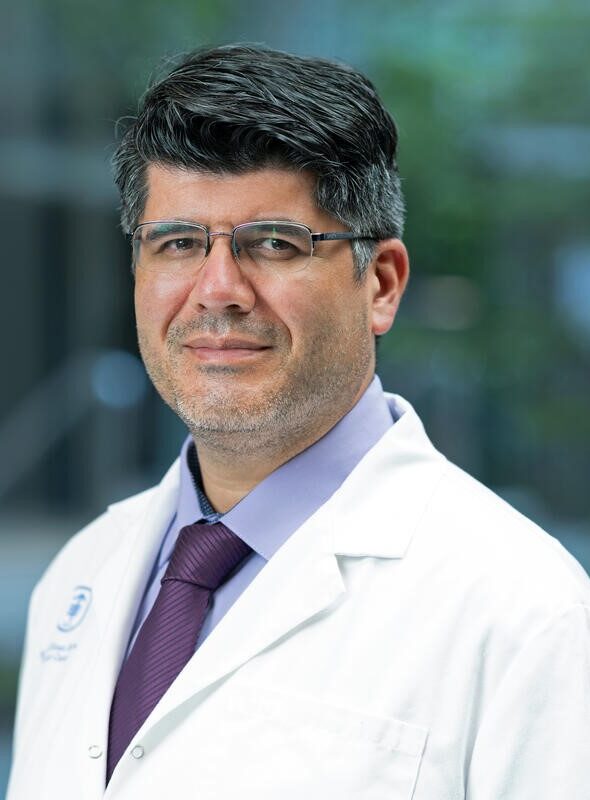I didn’t take steps for fertility preservation before my cancer treatment. Can I still become a father?

Jose M. Flores, an urologic surgeon at Memorial Sloan Kettering Cancer Center in New York City Photo courtesy of Memorial Sloan Kettering Cancer Center
In men with a cancer history, it’s common for the sperm count in semen to be reduced, hindering the chances for a natural pregnancy. Cancer itself can directly or indirectly disrupt hormone balance, leading to a decrease in sperm production. Some men may have aspermia, which is a complete lack of semen with ejaculation.
Additionally, cancer treatments can impede male fertility in various ways. Surgery for certain cancers, such as bladder and prostate cancers, may damage nerves needed to ejaculate. Chemotherapy can harm spermatogonia, which are the cells needed to produce sperm. Radiation, especially if it’s near the testes, can damage or kill sperm and spermatogonia. It can also cause dysfunction in the pituitary gland at the base of the brain behind the bridge of your nose, which is important for hormone production. Immunotherapy may injure sperm-producing cells or sperm quality. These treatment effects can be temporary or permanent. Men are generally advised to wait two years after cancer treatment before trying to have children because some treatments damage DNA and increase the risk for birth defects.
To learn about your ability to have children naturally, set up an appointment with a urologist or a reproductive endocrinologist. They will ask you to provide a semen sample for analysis. A technician will look at the sample under a microscope to see how many sperm there are, if the sperm are moving well and whether they appear normal. Your fertility specialist may also order a hormone analysis to measure your levels of testosterone and other hormones that play a role in sperm production and fertility.
If you have low testosterone or sperm counts, hormone treatment may help improve your hormone balance and levels of follicle-stimulating hormone, which stimulates sperm production in the testicles. It may take three months of treatment to increase your sperm count, and your care team can then analyze a new semen sample.
If a natural pregnancy is unlikely based on the results of your semen analysis or other factors, you can use an assisted reproduction method, such as intrauterine insemination, to increase your chances of having a biological child. If you don’t have any sperm in your samples, you may consider a surgical procedure called testicular sperm extraction, which collects sperm directly from your testes. Sperm donors and adoption also are good alternatives for building a family.
Remember that time is of the essence for fertility. Chances for a successful pregnancy will be highest when your partner is 35 years or younger. I encourage all couples facing a cancer diagnosis to talk with their doctor about fertility concerns and options as soon as possible. There is no guarantee, but your care team will try to maximize your chances to build or expand your family.
MALE FERTILITY // UC Davis Health explains options for male fertility preservation before cancer treatment. // Livestrong offers information about fertility preservation and financial resources.
The expert’s response was edited for clarity and based on an interview with Kendall K. Morgan.
Cancer Today magazine is free to cancer patients, survivors and caregivers who live in the U.S. Subscribe here to receive four issues per year.





